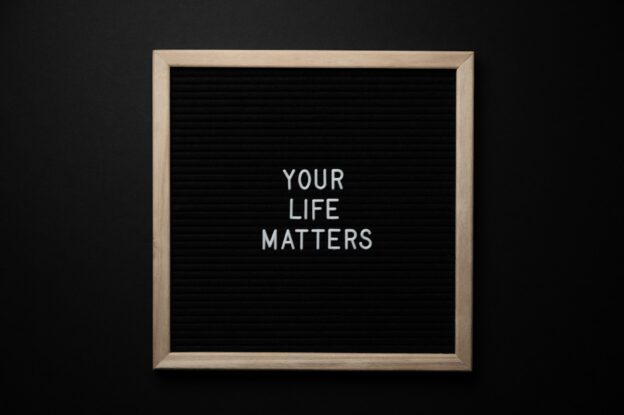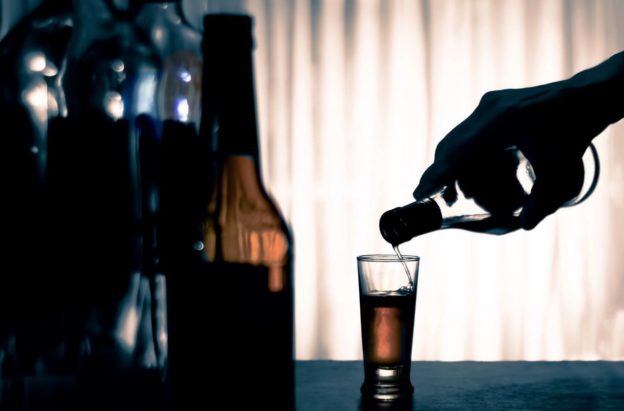When a family member who is part of your support system begins using drugs or alcohol and it is causing problems with his or her life and the lives of those around that person, you may be wondering just what you can do to help.
The support groups for families of addicts can connect you with other families in a similar situation, making it easier for you to cope. These support groups also offer education and resources on how to best support your loved ones during their recovery process.
Such drug abuse can take away everything that a person has worked toward for so long. There are support groups out there for families just like yours that can help keep your loved one on track.
These support groups for families of addicts will provide you with the support needed when it comes to dealing with someone in your life who has chosen to get clean and sober before it’s too late. The support group also helps parents deal with children who are at risk of relapse or who may already be addicted to drugs or alcohol.
The help that these support groups for families of addicts provide will be invaluable when it comes to the long road ahead. Not only do they offer support, but they also provide hope that your loved one can get clean and sober and stay that way. With the support of these groups, you can feel confident that you are doing everything possible to help your loved one through this difficult time.
What Is A Support System?
A support system can be the bedrock of addiction recovery. It is a group of people who support your sobriety and provide you with encouragement to stay on track. Your support system can also be made up of family members, friends, or close acquaintances.
The Importance Of A Support System
Having a support system is important for several reasons:
– People in recovery are more likely to relapse if they do not have a support system.
– A support system provides accountability and support.
– A support system can help you maintain your sobriety.
– A support system can offer emotional support during difficult times.
– A support system can provide practical support, such as rides to meetings or providing meals.
– A support system can help you establish priorities for your life, which makes you better prepared to fight the disease of addiction.
– A support system provides valuable feedback about your recovery.
– A support system can help avoid social support by offering support for people experiencing social support.
Families of Addicts & Their Roles
Families of addicts can adopt roles such as protector, enabler, co-dependent, and scapegoat.
The Protector role is often adopted by the family member who tries to take care of everyone and make sure they are okay. The Enabler role enables the addict’s behavior by making excuses for the addict, providing the addict with money or drugs, and/or cleaning up after the addict.
The Co-Dependent role is often adopted by the family member who feels responsible for the addict’s well-being and tries to control the addict’s behavior. The Scapegoat role is often adopted by the family member who takes on the blame for everything that goes wrong in the family. Family roles can cause distress and resentment, and make it difficult for family members to support each other.
Codependency can be defined as an emotional and behavioral pattern that can be both psychologically and socially harmful. Codependency is a learned behavior or learned helplessness. Co-dependent people believe that they cannot function without the other person’s support, love, guidance, etc.
This support is important for maintaining self-esteem and self-worth. The support provided by another person may come in the form of a drug that affects a mental or physical impairment upon oneself. For instance, if a mother has a child who has been struggling with alcohol abuse, she may clean up after the child and even deny that the child has a problem. In doing so, she will have to miss work from time to time because being around sick people puts her at risk.
There are support groups available for families of addicts all over the world. They can provide much-needed support and guidance to help cope with the unique challenges of addiction. It’s important for family members of addicts to attend support group meetings and individual counseling
What Is The Importance of Having Family Support While in Addiction Treatment and Recovery?
The importance of having family support while in addiction treatment can’t be stressed enough. Recovery support groups for families of addicts are one of the most important aspects of addiction treatment. Family support is key to long-term recovery because it can help prevent relapse by having the support of loved ones.
When someone enters addiction treatment, that person is taught how to better deal with feelings and emotions without using drugs or alcohol. People are given coping mechanisms that they can use if their triggers don’t expose them to substances that will lead to relapse.
If family support is available during this time, then it’s much easier for people to avoid relapsing once they leave rehab. When people feel alone after leaving rehab, relapse becomes more likely since there isn’t anyone there who understands what they’re going through.
What If I Don’t Have A Support System?
If you don’t have a support system, then it’s time to build one. This can be done by joining support groups for families of addicts. There are many of these groups available both online and in-person.
There are also support groups specifically for parents of addicts. These can be helpful since they provide a space for parents to share their stories and learn from each other. They can also offer support during tough times.
It’s important to remember that you’re not alone in your addiction treatment and recovery journey. There are many others who understand what you’re going through and are willing to help.
If you’re struggling with addiction or if someone you love is struggling with addiction, it’s important to seek help. Online resources and support groups can be a great place to start, but it’s important to also seek professional help. There are many addiction treatment centers that can help. You don’t have to do this alone. There is support available for you and your family.
Addiction is a difficult disease that affects both the addict and his or her loved ones. Family members often feel helpless and unsure of what to do. Support groups for families of addicts can provide much-needed support during this difficult time. These groups offer a space for family members to share their stories and learn from each other. They can also offer support during tough times.
What Are the Best Resources Are For Families Members that Suffer from Addiction?
There are plentiful resources for families members that suffer from addiction. Support groups are the best resources for support. Support groups exist in most communities and can be found by looking online or talking to friends who have family members with addiction problems.
When a loved one is struggling with an addiction, families tend to react in a number of different ways: from anger and blame, guilt and shame, fear and sadness, helplessness and hopelessness. All these emotions interfere with the ability to find support during difficult times as well as support for healthy changes.
In addition to support groups, families should take time every day for self-care practices such as journaling or meditating that will help them avoid negative feelings while in between support group meetings.
List of Some Good Support Systems for Addicts and Families of Addicts
- Al Anon: Alcoholics Anonymous (AA) is probably the most famous support group for addicts and their families. This 12-step program is based on Alcoholics Anonymous and provides support and encouragement through peer sharing.
The 12-step program that offers support and encouragement through peer sharing. The focus is not only on alcohol addiction, but any addiction that affects the family.
- Nar Anon: Like Al Anon, this support group provides support and encouragement through peer sharing. The focus is on drug addiction, for both the addict and the addict’s family members.
- Dual Recovery Anonymous: This support group works with addicts who are also dealing with an addiction of another type, such as food or sex addiction.
- SA Lifeline Foundation: This support group focuses on support for adolescents, usually teens aged 12 to 16 years old whose parent has a mental illness – whether it’s depression, schizophrenia, or another disorder – that causes them to have behavioral issues.
- SMART Recovery: SMART Recovery can be described as a “self-management and recovery training” program that helps addicts learn how to abstain from their addiction, deal with urges, manage thoughts and emotions, and live a balanced life.
What Are The Benefits of Having Support Groups for Families of Addicts?
There are benefits of having support groups for families of addicts. One of the benefits is that family members will have a safe place to share their feelings and thoughts about the addiction. They will also be able to receive support from other family members who are going through a similar situation. This support can help family members feel less alone and more hopeful.
In addition, support groups can provide families with information about addiction and its effects on the family. Families can also learn about resources available to them, such as treatment centers or support groups for addicts. Finally, support groups can help families develop coping skills that they can use in order to deal with the addiction.
There are many different types of support groups for families of addicts. Some support groups are specific to the type of addiction such as alcohol or drug addiction. Other support groups are open to families of any addict, regardless of the type of addiction.
Basic Support Group Rules
While there are no requirements that support groups must follow, there are some guidelines that support groups typically follow:
- Meetings should be safe places where participants respect each other’s privacy and confidentiality.
- Participants feel free to share their feelings without fear of being criticized or judged by others in the group. You may gain ideas from others’ experiences but remember that everyone has individual needs and personal limits.
- Groups work best when members actively participate in meetings
Support group for parents of addicts is a support group that is specific to parents of addicts.
This type of support group can provide parents with information about addiction and its effects on the family.
Parents can also learn about resources available to them, such as treatment centers or support groups for addicts. Finally, support groups can help parents develop coping skills that they can use in order to deal with the addiction.
What Should I Consider When I’m Looking for Support Groups?
When looking for support groups, there are several things to consider. First, determine the support group’s purpose. In addition to support groups for families of addicts, there are support groups for addicts. Support groups specifically for family members often have a more limited focus and may be better suited depending on your specific needs.
When looking for support groups, don’t forget to check online since there are many support groups out there that you can join or start yourself. You might also want to consider joining regional community organizations or faith-based communities.
Another thing to consider is what type of support you feel that you need. Some support options include phone support or online support programs which may offer a different experience from attending support groups in person.
There are also free support options as well as paid support options available to those who can afford them. So, make sure to research any potential expenses involved beforehand when attending a support group. What works best for one family member might not work at all for another.
Revitalize Your Life Through Harmony Ridge
While support groups can be helpful to your friends and loved ones who are addicts, support groups specifically for families of addicts may be even more beneficial because they give you the opportunity to support each other and work together to find a solution.
If you are looking for support groups for families of addicts, there are many different places you can turn. The Internet is a great source of information. If you’re struggling with addiction or if someone you love is struggling with addiction, please reach out to Harmony Ridge for support.

















